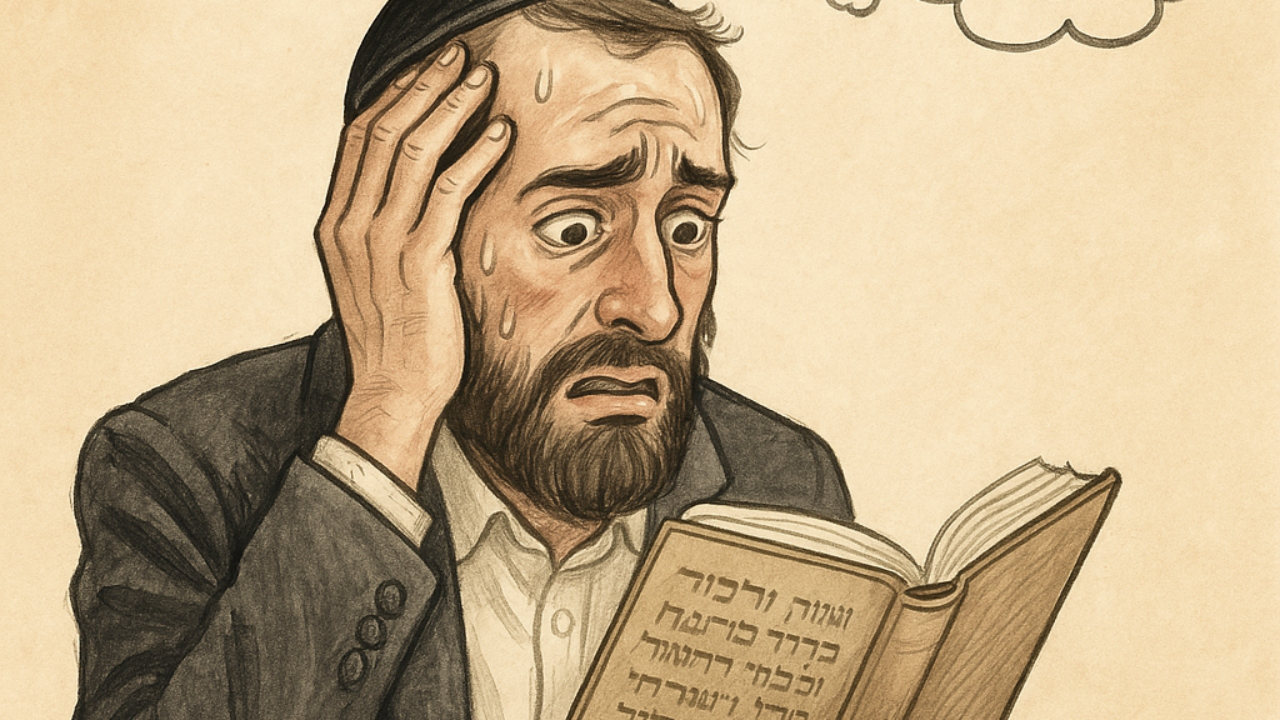FRUMRA?🗯️
Aug 26, 2025
One of my kids recently came up with the BEST word: a Frumra.
Not to be confused with a chumra.
How awesome is that?
I think a Frumra might be the perfect layman’s term for something we’re seeing more and more these days: scrupulosity — a fancy way of saying OCD in Halacha.
It often takes an expert to tell the difference between someone who’s super frum and someone who’s super OCD.
And I’ve personally seen it wreak havoc on inner peace, relationships, and marriages.
So chevra… it’s time to get more educated about Frumras. 💪
Ever say a bracha and then panic that maybe you left out Hashem’s Name… so you say it again… and then a third time just to be safe… and then stress that you might’ve said a bracha levatala?
Ever toivel extra times “just in case” — and still never feel certain you got it right?
Welcome to the world of scrupulosity: OCD meets religion.
Obsessive-Compulsive Disorder, a cousin to Anxiety, means having upsetting thoughts (obsessions) that won’t leave you alone, and doing things over and over (compulsions) to try to make those thoughts feel better.
PSA: You can have obsessions without compulsions, and compulsions without obsessions — and still be suffering from OCD.
So how do we assess these behaviors — the washing, the checking, the repeating Shema until the rest of the shul is halfway through Shemoneh Esrei?
Enter the STBQ — Scrupulous Thoughts and Behaviors Questionnaire.
It’s a newly validated measure that finally recognizes that Frum OCD isn’t just in your head — it’s in the repeated davening, the re-do’s, and the questioning your rav’s voicemail 17 times to figure out if his “yes” was really a “yes”… or a “sure”… or if he said “I could” or “I should.”
The STBQ breaks Scrupulosity into two key components:
- Thoughts/Obsessions: Intrusive worries about aveiros and punishment (e.g., “Did I just offend Hashem by zoning out in Maariv?”).
- Behaviors/Compulsions: The actions we take to make those worries go away (e.g., re-davening, over-kashering, avoiding situations, constant reassurance-seeking).
It’s a tool that helps therapists and researchers see the full picture — not just the guilt, but also the exhausting patterns that are fueled by that guilt.
And maybe, just maybe, if you’re seeing yourself (or your client, student, or cousin) in these descriptions, it’s worth asking: Is this a spiritual struggle… or a mental health one?
Because there’s a difference between being a Yerei Shamayim and being paralyzed by your own thoughts.
You can be frum without being exhausted.
Follow Halacha without being obsessive. Connected to Hashem without being compulsive.
If this hits close to home, please get help. There are Rabbanim and therapists with highly specialized training to help you through this.
If it’s not a chumra — and it’s a Frumra — you don’t have to live with it ;)
❤️, Shifi




